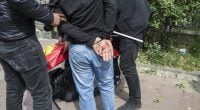Feb. 28 postmodern coup and sins of collaborative media

Date posted: March 7, 2012
The anniversary of the postmodern coup of Feb. 28, 1997, has seen much debate as to what happened during the coup, and we continue to discuss it heatedly even though one week has passed since the anniversary.
BÜLENT KENEŞ, March 6, 2012
| And if they were rewarded with energy, mining and banking tenders amounting to billions of dollars in return for the immoral role they played during the coup process, who can you make believe in the innocence of these media actors? Can you explain purely from a journalistic perspective the fact that these groups tended to pay millions of dollars and huge bonuses to some journalists they employed? For instance, what might Emin Çölaşan, who currently works for the Sözcü newspaper, have done to deserve an annual bonus at that time of $1.2 million from Aydın Doğan, in addition to his already high salary? |
The reasons for this animated debate may include the fact that this year saw the 15th anniversary of this disgraceful coup or that Turkey has finally acquired the courage to confront the coup perpetrators. Whatever the reasons may be, this debate does not seem to be ending anytime soon, and it is very likely to continue until all actors of the Feb. 28 coup are tried, as is the case with the coup of Sept. 12, 1980.
Any discussion of the coup naturally puts the members of the military under the spotlight as they are the real actors of the coup. However, in Turkey, a country with an ample repertoire of coups in its recent past, no military coup could be staged without securing the support of the media, the business world and some so-called civil society organizations (CSOs). Even, in some cases, some media groups and business organizations tried to provoke the military to stage a military intervention or a coup, even if the army had made no such attempt. For example, in 2003, a former Ankara representative of the Cumhuriyet newspaper — who is currently behind bars under the case against Ergenekon, a clandestine organization nested within the state trying to overthrow or manipulate the democratically elected government — had run the headline, “Young Officers Uneasy,” in collaboration with the junta members within the army. While no coup occurred in 2003, such headlines are indicative of the fact that some media organizations were as pro-coup as the junta members within the army.
That is, the Turkish experience does not indicate that certain media organizations were forced to be involved in military coup processes. Rather, they tended to give all sorts of provocations and encouragement to make those coups happen and take initiative to pave the way for coups by publishing fabricated news stories. This was certainly the case with respect to the abortive Sledgehammer (Balyoz) coup of 2003, and certain media organizations’ collaborative role, which can never be reconciled with journalistic principles, in the successful postmodern coup of Feb. 28 was much more critical.
In this light of this observation, I can’t agree more with the views my dear friend İhsan Dağı expressed yesterday in his column in the Zaman newspaper. In his article, which drew attention to the importance of the judicial process against the actors of the military coup of Feb. 28, Dağı says: “This process should be conducted with extreme meticulousness so that a clean, transparent Turkey that is free from coup threats can be created. Of course, there should be no hesitation in investigating, questioning and litigating offenders and those involved. But, if the process is so expanded to include even those who supported it, the litigation process may go off the rails. In such a case, thousands of people from the media, civil society, politics and business circles would have to be investigated. The judiciary should focus not on those who lent support to the Feb. 28 coup, but on those who were directly involved in the coup and who actively collaborated with coup perpetrators.”
| There should be a legal definition and separation for when media power and activities become available to the disposal of antidemocratic forces and collaborate with subversive generals on an antidemocratic target. It appears there will be much to discuss concerning the relations between the media and juntas in the process of investigating the military coup of Feb. 28. |
I think the question we must ask here is, who are those who actively collaborated with the coup perpetrators? For instance, can we fit powerful media groups of the time, Aydın Doğan’s Doğan Media Group and Dinç Bilgin’s Sabah Media Group, into this definition? Or how should we describe the extraordinary efforts exerted by the Cumhuriyet newspaper, led by the late İlhan Selçuk, who always dreamed of seeing a Baath-type regime in Turkey, to make a military coup take place in the country? Should we turn a blind eye to the media bosses who sought to become a full-fledged part of the Feb. 28 coup and, to this end, sacked some journalists based on a list soldiers had prepared by inserting the names of some democratic journalists into testimony from a Kurdistan Workers’ Party (PKK) executive?
And if they were rewarded with energy, mining and banking tenders amounting to billions of dollars in return for the immoral role they played during the coup process, who can you make believe in the innocence of these media actors? Can you explain purely from a journalistic perspective the fact that these groups tended to pay millions of dollars and huge bonuses to some journalists they employed? For instance, what might Emin Çölaşan, who currently works for the Sözcü newspaper, have done to deserve an annual bonus at that time of $1.2 million from Aydın Doğan, in addition to his already high salary? Or what kind of services had Tuncay Özkan rendered to media bosses for him to deserve the fortune they paid him, which made him sufficiently rich enough to establish a powerful TV channel that would cost him a fortune, although he was an ordinary reporter covering police and judicial stories in the beginning and he ended up as a defendant at the case against Ergenekon? In what country are tens of millions of dollars paid to a columnist or a journalist purely for his/her journalistic services?
Such questions have been nagging the Turkish public since the military coup of Feb. 28, 1997. Finally, we are on the doorstep of a period when these questions can be answered. Having obtained the opportunity to confront and settle accounts with coups thanks to the referendum of Sept. 12, 2010, Turkey is now at the stage of avenging itself for the military coup of Feb. 28, as well as for the coup of Sept. 12, 1980. Given the fact that at least 30 percent of the headlines the newspapers had run during the Feb. 28 postmodern coup process were lies and fabrication and the majority of their headlines aimed to overthrow the democratically elected government and replace it with a figurehead government amenable to the military, the collaborative media organizations will certainly have to answer for their sins that targeted democracy.
| Even, in some cases, some media groups and business organizations tried to provoke the military to stage a military intervention or a coup, even if the army had made no such attempt. For example, in 2003, a former Ankara representative of the Cumhuriyet newspaper — who is currently behind bars under the case against Ergenekon, a clandestine organization nested within the state trying to overthrow or manipulate the democratically elected government — had run the headline, “Young Officers Uneasy,” in collaboration with the junta members within the army. |
Indeed, the Turkish media organizations are now stuffed with accounts of which media organizations and journalists played what roles during the Feb. 28 coup process. In the face of these accounts, we see that the pro-coup media actors of that time have panicked in a way never seen before. We know that the pro-coup media actors have long been concerned with the possibility of litigation, and they have been trying to ward off such a possibility. As a matter of fact, they have done their best to avert any litigation so far, as they know best what critical non-journalistic roles they played in military coups and interventions and what they had earned in return. They even used some journalists who had been arrested on charges of working for the Ergenekon Terrorist Organization as a first line of defense in their efforts to avoid any judicial probe into their own actions. In other words, they tried to justify the acts of supporting coups and military juntas and membership in a terrorist organization as a matter of press freedom.
We must acknowledge that they were considerably successful thanks to their widespread access to and influence in the West. From the traditional press freedom perspective, it is not possible to consider journalistic acts or expressions of opinion as offenses. But there should be a legal definition and separation for when media power and activities become available to the disposal of antidemocratic forces and collaborate with subversive generals on an antidemocratic target. It appears there will be much to discuss concerning the relations between the media and juntas in the process of investigating the military coup of Feb. 28.
Source: Today’s Zaman http://www.todayszaman.com/columnist-273513-feb-28-postmodern-coup-and-sins-of-collaborative-media.html
Tags: Military coups in Turkey |
























